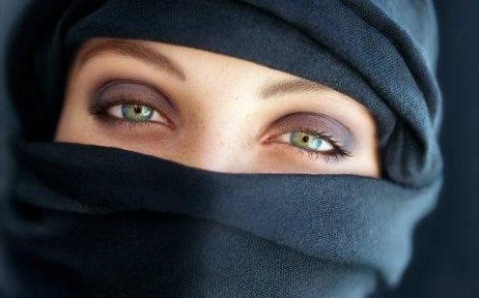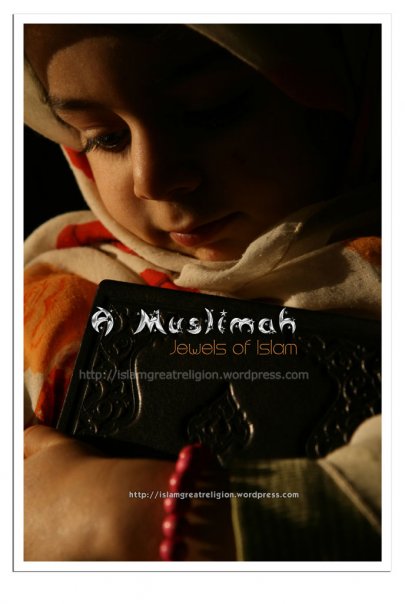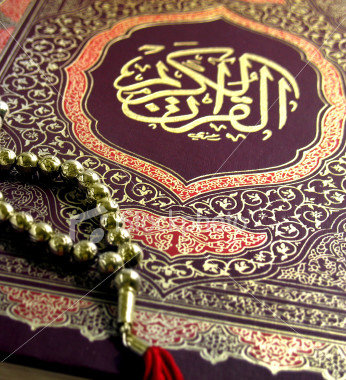Posts Tagged ‘Family’
- In: Family | Islam | Ramadaan | Ramadan
- Leave a Comment
Are Your Children Ready for Ramadan?
Tips for Muslim Parents

Ramadan is always a very special time for Muslims all over the globe.
It’s a time for closeness to our Creator, for spiritual healing, for asking for forgiveness and seeking Allah’s content with us.
In Search of the Beautiful Body
Posted on: February 20, 2013
- In: All | Allah الله | Islam | Satan/Shaitan/Jinn | Tricks of Satan | Women In Islam
- 3 Comments
In Search of the Beautiful Body

There seems no limit nowadays to the extent that women (and men) are prepared to go to in order to achieve that ‘perfect look’. Forget false eyelashes and wigs, we are now talking scalpels, implants and liposuction!!
Cosmetic surgery amongst film actor/actresses has been common place for quite some time now, but these days, it wouldnt be too hard pressed to find ordinary women on the street who are more plastic than real! Indeed, in some circles, having multiple facelifts has become a status symbol: the more you have, the higher you are in the status rankings.
If questioned whether cosmetic surgery was Islamically correct or not, then without doubt, most Muslims would instinctively respond by saying that it isnt, for the simple reason that it would be interfering with Allaahs creation. And certainly, this would be the correct response.
The Companion, Ibn Masood, radiAllaahu anhu, once said (quoting what he had heard the Prophet, sallallaahu alaihi wa sallam, say): “Allaah has cursed the tattooers and those who have themselves tattooed, and those women who have their teeth filed for beauty and those who have their [facial] hair plucked and thus alter Allaah’s creation.” A woman remarked, “What’s all this?” So Ibn Mas’ood – radiAllaahu anhu – said: “Should I not curse one whom Allaahs Messenger cursed? And it is in the Book of Allaah!” She said: “I have read the Quraan from cover to cover, but I did not find that in it.” He replied: “If you had read it thoroughly you would have found it.
Allaah says, ‘Whatever the Messenger gives you, take it and whatever he has forbidden, retrain from it’” [Sooratul-Hashr (59):7]. 1
So the Prophet Muhammad, sallallaahu alaihi wa sallam, forbade women from performing these three practices which the women commonly did for the sake of beauty in those days – seemingly ‘insignificant’ practices for which they would incur the CURSE of Allaah. And this forbiddence isnt just restricted to the procedures mentioned in the hadeeth.
Because Allaah says in more general terms in His Book: “So set your face truly to the faith, Allaahs handiwork according to the pattern on which He has made mankind, [Let there be] no change in the creation of Allaah.” 2 [Soorah ar-Room (30):30].
Therefore, it is obligatory for us to accept the creation of Allaah as it is, not making any alterations to it.3
More importantly though, it is also obligatory or us to believe that all of Allaahs creation is beautiful, because Allaah, the Khaaliq (Creator) does not create anything except with beauty and perfection, which is why He says to mankind: “You can see no fault in the creation of ar-Rahmaan [the Most Merciful]. Then look again: can you see any rifts? Then look again and yet again, your sight will return to you in a state of humiliation and worn out.” [Soorah al-Mulk (67):3].
This may all sound quite strange when we consider how often we hear women complaining about their appearance. In fact, it is estimated that over half of the Western women today actually perceive themselves to be ugly. In addition, surveys show that nearly all women feel under pressure to “look good”.
As a result, the quest for beauty has become a serious preoccupation for many women. Open up any womens magazine and you will not fail to find a single one which doesnt contain tips on how to “look good”, or which dont contain huge adverts promoting new creams that halt the aging process or concealers to hide wrinkles, etc.
Beauty today is big business. Beauty contests are very profitable and – contrary to popular belief – more are spawned every year. The cosmetics market is a multi-billion dollar industry; the demand for cosmetic surgery is growing at a tremendous rate. All three industries promote the same notions o beauty that women everywhere are expected to meet: mainly a white, European, “Barbie-doll” like standard. The pressures on women to conform to these standards are enormous and few are able to withstand them.4
The fact is that Western women today may complain that they are not treated with equality and respect, but it is they themselves who have made it acceptable for society worldwide to see women merely as beauty-objects who are there to be ogled by the men who in turn are the (im)polite voyeurs. When viewed in this light, we find that beauty contests are not too dissimilar to reality itself: just as the tallest, slimmest blonde girl gets the title in the beauty contest, in the real world its the tallest, slimmest blonde girl who gets the man!
In Islaam, beauty is not just in the eye of the beholder, beauty is in the whole of creation, because Allaah – the One free of all imperfections – is the one responsible for it.
And as Allaah says: “Your Lord creates whatsoever He wills and chooses: no choice have they. SubhaanAllaah! And far removed is He from the partners they ascribe [to Him].” [Soorah al-Qasas (28):68].
So it is from the wisdom of Allaah that He has chosen to create some of us short, others tall, some fat, some thin, some dark-coloured, some light – all are beautiful and perfect in their own right. That is why we are taught from the Sunnah, the beautiful duaa (supplication) that the Prophet, sallallaahu alaihi wa sallam, would say: “O Allaah, as You have made my appearance beautiful, likewise make my character beautiful.” (Allaahumma kamaa hassanta khalaqee fa hassin khuluqee). 5
As Muslims, we must believe that evil and imperfection cannot be attributed to Allaah. 6
The desire to change any aspect of ourselves means, in effect, that we are dissatisfied with Allaahs choice and His handiwork, and that there is imperfection in what He has created. Thus to say about ourselves or anyone else that we or they are ugly is a great sin.
This point was reinforced by the Prophet, sallallaahu alaihi wa sallam, when he once saw the Companion, Amr ibn Fulaan al-Ansaaree, radiAllaahu anhu, whose izaar (lower garment) was hanging low (to the ground), so he, sallallaahu alaihi wa sallam, ordered that he raise it. Amr made an excuse saying that he had skinny shins (i.e. he was embarrassed to show them), so the Prophet responded by saying: “O Amr! Verily Allaah – the Mighty and the Majestic – has created everything in the best form.” 7
All this is certainly not intended to discourage women to look after themselves and adorn themselves in lawful ways (e.g. wearing nice clothes, having nicely done hair, etc.). Indeed, adorning oneself is something that the wives are obliged to do for their husbands and Allaah rewards the woman who pleases the husband when he looks at her. 8
But with these tremendous pressures on women to conform to the ideals set by the marketing media, it may be hard for Muslim women to resist feeling insecure or uncomfortable about their appearance. Consequently, many Muslim women have shed their hijaabs for the sake of following fashion; Muslim women too develop inferiority complexes about themselves.
We must bear in mind that this search for the ‘body beautiful’ is, in reality, a deception from Shaitaan. Shaitaan has vowed that he will create such false desires in mankind.
He has said (as stated in the Quraan): “Surely I will arouse in them [mankind] false desires; and certainly I will order them to slit the ears of cattle, and indeed I will order them to change the nature created by Allaah.” [Soorah an-Nisaa’ (4):119].
May Allaah always keep us safe from the false promises of Shaitaan, for Verily He is the One who guides to the Truth.
——————————————————————————–
Notes
1. Reported by Ibn Masood and collected in Saheeh Muslim (English trans, vo1. 3, p.1166, no.5301). This incident is a good illustration of the status which the Sunnah held in front of the Companions.
2. Note that this forbiddence applies to the whole of creation, not just human beings. Therefore, defacing any part of Allaah’s creation is haraam. By extension, this ruling also applies to all forms of genetic engineering, which are carried out on farm animals, for example, in order to procure more profitable meat from them.
3. This is with the exception of those things which have been prescribed in the Shareeah, e.g. clipping the nails, shaving the underarms and around the private parts, etc.
4. In fact, some women go to such extremes that it results in them developing health problems – anorexia nervosa – for instance. The carcinogenic nature of breast implants are also well documented now. No doubt, the future will reveal more harmful effects of these artificial means of changing creation.
5. One hadeeth which contains this supplication mentions that this duaa should be recited on looking in the mirror. However, the chain (isnaad) of this hadeeth is not authentic. But it is authentically reported as a supplication to be recited at any time. (See Ibn Taimiyyah’s al-Kalimat-Tayyib with al-Albaanee’s footnotes.)
6. For an explanation of this important aspect of belief, please refer to The Prophet’s Prayer Described (p.15).
7. Saheeh – collected in the Musnad of Imaam Ahmad (vo1.4, p.200).
8. See Musnad Ahmad, an-Nasaa’ee and others. Also, it is forbidden for the husband to invoke ugliness upon the wife – as was a common practice amongst the pre-Islamic Arabs.
source: originally appeared in Ad-dawah ilallah magazine, Volume 1, Issue 3.



Note:I’d love to see who visit my website,your views about website. Click here to leave your feedback.

Stay Connected With Free Updates
 |
 |
 |
If you cannot visit this site everyday and would like to receive our articles everyday via email, please click here and enter your email address in the new window.
PLEASE CHK YOUR EMAIL AFTER SUBMITTING EMAIL,YOU MUST CONFIRM SUBSCRIPTION ! |
![]()
- In: All | Allah الله | Islam | Women In Islam
- 2 Comments
Status and Roles of Women In Islam..

As a daughter:
(1) The Qur’an ended the cruel practice of female infanticide, which was before Islam. Allah has said: “And when the female (infant) buried alive (as the pagan Arabs use to do) is questioned: For what sin was she killed.” (Qur’an 81:8-9)
(2) The Qur’an goes further to rebuke the unwelcoming attitude of some parents upon hearing the news of the birth of a baby girl, instead of a baby boy. Allah has said: “And when the news of (the birth of) a female (child) is brought to any of them, his face becomes dark, and he is filled with inward grief. He hides himself from the people because of the evil whereof he has been informed. Shall he keep her with dishonor or bury her in the earth? Certainly, evil is their decision.” (Qur’an 16:58-59)
(3) Parents are duty-bound to support and show kindness and justice to their daughters. Prophet Muhammad (peace be upon him) said: “Whosoever supports two daughters until they mature, he and I will come on the Day of Judgment as this (and he pointed with his fingers held together).”
(4) A crucial aspect in the upbringing of daughters that greatly influences their future is education. Education is not only a right but a responsibility for all males and females. Prophet Muhammad (peace be upon him) said: “Seeking knowledge is mandatory for every Muslim.” The word “Muslim” here is inclusive of both males and females.
(5) Islam neither requires nor encourages female circumcision. And while it may be practiced by some Muslims in certain parts of Africa, it is also practiced by other peoples, including Christians, in those places, a reflection merely of the local customs and practices there.
As a wife:
(1) Marriage in Islam is based on mutual peace, love, and compassion, and not just the mere satisfying of human sexual desire. Among the most impressive verses in the Qur’an about marriage is the following:
“And among His signs is this, that He created for you wives from among yourselves, that you may find repose in them; and He has put between you affection and mercy. Verily, in that are indeed signs for a people who reflect.”(Qur’a n 30:21, see also 42:11 and 2:228)
(2) A female has the right to accept or reject marriage proposals. According to the Islamic Law, women cannot be forced to marry anyone without their consent.
(3) The husband is responsible for the maintenance, protection, and overall leadership of the family, within the framework of consultation (see the Qur’an 2:233) and kindness (see the Qur’an 4:19). The mutuality and complementary nature of the role of husband and wife does not mean subservience by either party to the other. Prophet Muhammad (peace be upon him) instructed Muslims regarding women: “I command you to be good to women.” And “The best among you are those who are best to their wives.”
The Qur’an urges husbands to be kind and considerate toward their wives, even if a wife falls out of favor with her husband or disinclination for her arises within him:
“…And live with them honorably. If you dislike them, it may be that you dislike a thing and Allah brings through it a great deal of good.” (Qur’an 4:19)
It also outlawed the Arabian practice before Islam whereby the stepson of the deceased father was allowed to take possession of his father’s widow(s) (inherit them) as if they were part of the estate of the deceased (see the Qur’an 4:19).
(4) Should marital disputes arise, the Qur’an encourages couples to resolve them privately in a spirit of fairness and goodness. Indeed, the Qur’an outlines an enlightened step and wise approach for the husband and wife to resolve persistent conflict in their marital life. In the event that dispute cannot be resolved equitably between husband and wife, the Qur’an prescribes mediation between the parties through family intervention on behalf of both spouses (see the Qur’an 4:35).
(5) Divorce is a last resort, permissible but not encouraged, for the Qur’an esteems the preservation of faith and the individual’s right – male and female alike – to felicity. Forms of marriage dissolution include an enactment based upon mutual agreement, the husband’s initiative, the wife’s initiative (if part of her marital contract), the court’s decision on a wife’s initiative (for a legitimate reason), and the wife’s initiative without a cause, provided that she returns her marital gift to her husband. When the continuation of the marriage relationship is impossible for any reason, men are still taught to seek a gracious end for it. The Qur’an states about such cases:
“And when you have divorced women and they have fulfilled the term of their prescribed period, either take them back on reasonable basis or set them free on reasonable basis. But do not take them back to hurt them, and whoever does that, then he has wronged himself.” (Qur’an 2:231, see also 2:229 and 33:49)
(6) Associating polygamy with Islam, as if it was introduced by it or is the norm according to its teachings, is one of the most persistent myths perpetuated in Western literature and media. Polygamy existed in almost all nations and was even sanctioned by Judaism and Christianity until recent centuries. Islam did not outlaw polygamy, as did many peoples and religious communities; rather, it regulated and restricted it. It is not required but simply permitted with conditions (see the Qur’an 4:3). Spirit of law, including timing of revelation, is to deal with individual and collective contingencies that may arise from time to time (e.g. imbalances between the number of males and females created by wars) and to provide a moral, practical, and humane solution for the problems of widows and orphans.
As a mother:
(1) The Qur’an elevates kindness to parents (especially mothers) to a status second to the worship of Allah:
“Your Lord has decreed that you worship none but Him. And that you be dutiful to your parents. If one of them or both of them attain old age in your life, say not to them a word of disrespect, nor shout at them but address them in terms of honor. And lower unto them the wing of submission and humility through mercy, and say, ‘My Lord! Bestow on them Your Mercy as they did bring me up when I was young.” (Qur’an 17:23-24, see also 31:14, 46:15, and 29:8)
(2) Naturally, Prophet Muhammad (peace be upon him) specified this behavior for his followers, rendering to mothers an unequaled status in human relationships. A man came to the Prophet (peace be upon him) and said,“O Messenger of God! Who among the people is the most worthy of my good companionship?” The Prophet (pbuh) said: “Your mother.” The man said, “Then who?” The Prophet (pbuh) said: “Then your mother.” The man further asked, “Then who?” The Prophet (pbuh) said: “Then your mother.” The man asked again, “Then who?” The Prophet said: “Then your father.”
As a sister-in-faith
(1) According to Prophet Muhammad (peace be upon him): “Women are but shaqa’iq (twin halves or sisters) of men.” This saying is a profound statement that directly relates to the issue of human equality between the genders. If the first meaning of the Arabic word shaqa’iq, “twin halves,” is adopted, it means that the male is worth one half (of society), while the female is worth the other half. If the second meaning, “sisters,” is adopted, it implies the same.
(2) Prophet Muhammad (pbuh) taught kindness, care, and respect toward women in general: “I command you to be good to women.” It is significant that such instruction of the Prophet (pbuh) was among his final instructions and reminders in the farewell pilgrimage address given shortly before his passing away.
(3) Modesty and social interaction: The parameters of proper modesty for males and females (dress and behavior) are based on revelatory sources (the Qur’an and Prophet’s sayings) and, as such, are regarded by believing men and women as divinely-based guidelines with legitimate aims and divine wisdom behind them.They are not male-imposed or socially-impose d restrictions. It is interesting to know that even the Bible encourages women to cover their head: “If a woman does not cover her head, she should have her hair cut off; and if it is a disgrace for a woman to have her hair cut or shaved off, she should cover her head.” (1 Corinthians 11:6).
The legal and political aspect of women in Islam
(1) Equality before the law: Both genders are entitled to equality before the law and courts of law. Justice is genderless (see the Qur’an 5:38, 24:2, and 5:45). Women do possess an independent legal entity in financial and other matters.
(2) Participation in social and political life: The general rule in social and political life is participation and collaboration of males and females in public affairs (see the Qur’an 9:71).There is sufficient historical evidence of participation by Muslim women in the choice of rulers, in public issues, in law-making, in administrative positions, in scholarship and teaching, and even in the battlefield. Such involvement in social and political affairs was conducted without the participants’ losing sight of the complementary priorities of both genders and without violating Islamic guidelines of modesty and virtue.
Conclusion:
The status which non-Muslim women reached during the present era was not achieved due to the kindness of men or due to natural progress. It was rather achieved through a long struggle and sacrifice on woman’s part and only when society needed her contribution and work, more especially during the two World Wars, and due to the escalation of technological change. While in Islam such compassionate and dignified status was decreed, not because it reflects the environment of the seventh century, nor under the threat or pressure of women and their organizations, but rather because of its intrinsic truthfulness.
If this indicates anything, it would demonstrate the Divine origin of the Qur’an and the truthfulness of the message of Islam, which, unlike human philosophies and ideologies, was far from proceeding from its human environment; a message which established such humane principles that neither grew obsolete during the course of time, nor can become obsolete in the future. After all, this is the message of the All-Wise and All-Knowing God whose wisdom and knowledge are far beyond the ultimate in human thought and progress.



Note:I’d love to see who visit my website,your views about website. Click here to leave your feedback.

Stay Connected With Free Updates
 |
 |
 |
If you cannot visit this site everyday and would like to receive our articles everyday via email, please click here and enter your email address in the new window.
PLEASE CHK YOUR EMAIL AFTER SUBMITTING EMAIL,YOU MUST CONFIRM SUBSCRIPTION ! |
![]()

Lion Family Morning Walk :: Perfect Picture

What the hell is this black,moving with me…DON’T MESS WITH FUTURE KING OF JUNGLE grrrrooooaaarrrr bloody hell

Can’t wait couple of mints for me… Grrrrrrrrrooo
You can download full size images from here :
Beautiful Lion Family’s Morning Walk



Note:I’d love to see who visit my website,your views about website. Click here to leave your feedback.

Stay Connected With Free Updates
 |
 |
 |
If you cannot visit this site everyday and would like to receive our articles everyday via email, please click here and enter your email address in the new window.
PLEASE CHK YOUR EMAIL AFTER SUBMITTING EMAIL,YOU MUST CONFIRM SUBSCRIPTION ! |
![]()
In-laws or Outlaws ?
Posted on: June 13, 2012
- In: All | Allah الله | Islam | Marriage | Women In Islam
- 3 Comments

In-laws or Outlaws
“Allah commands justice, the doing of good and liberality to kith and kin, and He forbid all shameful deeds and injustice and rebellion; He instructs you that ye may receive admonition.”
(Surah An-Nahl: Verse 90)
Almost every society especially the ones flourishing in subcontinent or the ones influenced by subcontinent culture is a huge victim of interference of both parents and in-laws in the affairs of children especially after their marriage. Parents should understand that Allah has bestowed upon them set of responsibilities towards their children and like versa. However it is evidently clear from Quran and Sunah that children are not the properties of their parents and vice versa and therefore no-one owns no one. Every time either party goes beyond their already set responsibilities or expectations— injustice shall arise and chaos shall be inevitable/un-avoidable. Surely in that case, involved party shall be answerable before Allah!!!
Many divorces, too, take place between young couples because of parental interference. If we really want our children to flourish and progress, we should refrain from interfering in their affairs. We should not try to become uninvited judges of their problems. We find that this malaise practice is deeply rooted in our society. It has gone to such an extent that even the men of piety, even those who are regular in salah and even those who are understanding, intentionally or unintentionally, cause problems for their children by their interferences. Kindly find below refreshing take on certain aspects to help sort out this serious issue:
01. Love & Jealousy – One should learn to accept that different kind of love exists and each has its own capacity and its importance, eg. Children’s love to their parents, husband’s love to his wife, brother’s love to his sister and so on. Once either son or daughter gets married, mothers commonly feel jealous that their children love their spouse more than them. Kindly understand that the love of your children towards you is always there and could not be compared with their bond and commitment towards their spouses.
02. Confidence – Be confident in your children’s love and do not suspect them just because they need to divide their time towards spouses after the marriage. Be sure to keep loving you them as before and let the children know of it. Always let them know that you are there for them no matter what for any guidance
03. Care – Common issue relating to care and looking after parents after marriage is that parents often wrongfully blame their son in-law or daughter in-law for not taking care of them enough or at least that’s how it is perceived —this is mainly applicable to situations where daughter in laws are concerned. It should be very clear that it is mainly the duty of children themselves to fully accept and fulfill their responsibilities towards their own respectful parents. Majority of the times, parents either fail to realize or still in denial to accept that in many cases it is their own children’s negligence and only they are to be blamed—this applies mainly to cases where son responsibilities are concerned towards its own parents.
04. Consultation – When one gets married, issues relating to spouses/marriage are bound to emerge—in which case one can always go to their parents or in-laws for guidance. Make sure that one should consult them and should not complain to them. If one comes across as complaining to their in-laws about their daughter or son—it shall be taken negatively and shall always create a negative impression.
05. Advice for parents/in-laws- Remember always to advise your children rather than ordering them or imposing your suggestions on them.
06. Involvement of parents/in-laws – Don’t get involved in the details of your children’s marriage life– let them explore and experience their lives on themselves. Let them handle things on their own unless they come to you for your help and advice! Remind yourself all the time, that when you got married you wished the same.
07. Gifts – Often give gifts, small and immaterial it may seem, to your parents and in-laws as it has a magic effect. Love needs expression so such kind gestures show one’s love and care to them. Always remember to be fair and just between parents and in-laws.
08. Forgiveness – Whatever your parents or in-laws say or do–always be willing and ready to let issues go by. Allah loves those who forgive and forget and is considered one of the best attributes to have.
Keeping in mind the Qur’anic verse where Allah says;
”and treat your parents with kindness; if either of them or both reach old age in your presence, do not say *Uff* to them and do not rebuff them, and speak to them with the utmost respect. And lower your wing humbly for them, with mercy, and pray, “My Lord! Have mercy on them both, the way they nursed me when I was young.”
(Qur’an 17:23-24)
09. Privacy of couples—Keep your family matters within the walls do not disclose them unless it is necessary.
10. In-law’s respect and care for daughter-in-law – Let the daughter-in-laws know of your respect, care and love for them specially through your actions. Express her of your happiness and satisfaction upon her marriage to your son, and how wonderful of a wife she has been to him. If she happens to be a mother, tell her what a wonderful mother she is. No one ever gets tired of hearing sincere compliments. Do compliment her and say “JazakAllah” when “JazakAllah” is due instead of behaving as if a thoughtful gesture is a duty to her towards that needs to be obeyed.
11. Realizing that you are you and she is she- Your daughter-in-law will most likely do things differently than you. If it bothers you, just smile and bear it. Don’t try to dictate how things should be done. In the end, the little details aren’t important. Don’t let them cause tension between you.
12. To Mother in-laws – You have seen each one of them grow from young ladies, to loving, caring women. Give them the same unconditional love that you give your sons.
13. To Mother in-laws – They were raised by families with different backgrounds than yours. They each have their own ways of doing things. They have learned a lot from you, and, hopefully, your relationship will get better with time.”
Needless to say, some of the comments above may be relevant to fathers-in-law as much as it is to mothers-in-laws. In order to sustain the key elements of a wonderful relationship with your daughter-in-law/ son-in-law a concerted EFFORT is to be made in establishing and maintaining it. Nonetheless, as this article has concentrated on the mother-in-law; it is not intended to portray a one sided approach or to demonize them in anyway. To equally sustain and maintain this balance—it requires and needs the daughter-in-law/ son-in-law play their parts with similar awareness, respect, care and patience. As the cliché’ goes: “It takes two hands to clap”.
14. Be a good wife and be a good husband that no one will ever criticize you.
( Nor can Goodness and Evil be equal. Repel [Evil] with what is better: then will he between whom and you was hatred become as it were your friend and intimate!And no one will be granted such goodness except those who exercise patience and self-restraint – none but persons of the greatest good fortune.)
(Qur’an 41:34-35)
– Allah knows best –
![]()
Recommended Articles
Hijab is not to protect Men,but to honor women
Women In Islam :: Pointers for Western Mind



Note:I’d love to see who visit my website,your views about website. Click here to leave your feedback.

Stay Connected With Free Updates
 |
 |
 |
If you cannot visit this site everyday and would like to receive our articles everyday via email, please click here and enter your email address in the new window.
PLEASE CHK YOUR EMAIL AFTER SUBMITTING EMAIL,YOU MUST CONFIRM SUBSCRIPTION ! |
![]()
- In: All | Allah الله | Islam | Women In Islam
- 2 Comments
MEN ARE THE PROTECTORS AND MAINTAINERS OF WOMEN
by Salmaan ibn Fahd al-‘Awdah

Allah says:
“Men are the protectors and maintainers of women because of what Allahhas preferred one with over the other and because of what they spendto support them from their wealth.”[Sûrah an-Nisâ’: 34]
What does it mean that men are “protectors and maintainers” of women? To answer this question, let us first look at the Arabic word that weare translating as “protectors and maintainers”. This word is“qawwâmûn” the plural of “qawwâm”.
This word – qawwâm – in turn, is an emphatic form of the word“qayyim”, which means a person who manages the affairs of others. Theqayyim of a people is the one who governs their affairs and steerstheir course. Likewise, the qayyim of a woman is either her husband orher guardian – the one who has to look after her and ensure that herneeds are met.
When Allah says: “Men are the qawwâmûn of women…” it means – and Allahknows best – that men are held liable for handling the affairs ofwomen and are responsible for the women under their care. A husband,therefore, has the responsibility of taking care of his wife,protecting her, defending her honor, and fulfilling her needsregarding her religion and her worldly life. It does not mean – as alltoo many people have falsely assumed – that he has the right to behaveobstinately towards her, compel her, subject her to his will, suppressher individuality, and thus heinously negate her identity.
His status as protector and maintainer is pure responsibility, pureliability, and not so much a position of authority. It requires fromhim that he uses his good sense, thinks carefully about what he does,and exercises patience. It means that he cannot be hasty and offhandedin his decisions. It does not mean that he can disregard his wife’sopinions and belittle her good person.
Why does Islam make men the protectors and maintainers of women?
The verse gives us two reasons why men are given this burden toshoulder. Allah says: “…because of what Allah has preferred one withover the other…” and “…because of what they spend to support them fromtheir wealth.”
A problem arises when it is said that men have a preference to women.Then we see all those organizations, establishments, and activists whocall to women’s equality stirring into motion, jumping up ready tofight over this point, and going off on all kinds of tangents in theirthinking. Rather, they should pause long enough to properly understandwhat it means when Allah says: “…because of what Allah has preferredone with over the other …” This proper understanding can only be hadin the light of the Qur’ân and Sunnah and their sound application.
Those who go overboard in asserting the rights of women and claim thatthe woman in Islam is oppressed and that Islam does not do her justiceare driven to the point where they transgress against the very textsof the Qur’ân and Sunnah. In the name of “equality”, they demandabsolute uniformity in matters of inheritance, in governance, and ineverything else wherein a distinction between the sexes is made,sometimes taking matters so far that it is the men who have to chaseafter the hope of equality with women.
This brings us back to the question of what the verse is saying. Is itindicating that there is some inherent preference of men over women,something that is built into their very natures? The scholars ofQur’ânic commentary have taken two approaches to this matter.
The first approach is to refer the matter of the verse back to thenatural makeup of men and women, with respect to their intellects,their different manners of thinking, and their natural strengths. Theyfound that men, by nature, are more hot-blooded, tending more towardsstrength and severity, while women’s natures are cooler, tending moretowards gentleness and weakness.
The second approach is to look at it from a legal angle – that Allahhas imposed upon men to pay dowries to the women they wish to marryand has made men liable to spend on women and provide for them. Thisis the preference that men have over them. Likewise, Allah has placedprophecy with men only, as there has never been a woman prophet. Inthe same way, Allah has made the offices of supreme politicalauthority and the obligations of jihad the exclusive domain of men.
The issue of testimony is also brought up in this regard, for Allah says:
“And bring to witness two witnesses from among your men. And if thereare not two men available, then a man and two women from those whomyou accept as witnesses – so that if one of them errs, the other canremind her.”[Sûrah al-Baqarah: 282]
Others using this approach have cited certain acts of worship, likethe fact that the Friday prayer and congregational prayers areprescribed only for men and not made compulsory on women.
The fact that men can have four wives while women cannot have morethan one husband, or the fact that men have the exclusive option ofimmediate divorce have also been advanced as an interpretations.
With respect to both of these approaches, there are two observationsthat we can make:
The first is that the followers of both approaches agree on apreference of men over woman on the basis of Allah’s words: “…becauseof what they spend to support them from their wealth.”
The second is that the opinions of the commentators regarding whetheror not the preferentiality refers to the natures of men and women isall based on their discretionary opinions (ijtihâd) with respect totheir understanding of the verse. In any event, it would be fair tosay that Allah has indeed singled out men for certain distinctions –prophethood, supreme political office, jihad, and military service,among other things – and this is because men have a nature differentthan that of women. This is a conclusion that all reasonable peoplewould have to agree upon. The obligation imposed upon men by Islam toprotect and maintain women should be seen in the context of thedifference in their natural makeup and that the purpose for this is tosecure the best interests of women.
Allah’s laws always accord with nature and take into consideration theunique gifts that Allah has bestowed upon each half that makes up thehuman whole – the man and the woman, so that those gifts can beemployed to their maximum effectiveness.
We must remain cognizant of the fact that both men and women areAllah’s creations. And that Allah would never oppress any of Hiscreatures. He prepares each of His creations to the purpose that heintends for it and bestows upon it the innate abilities needed tocarry out that purpose.
Allah has made it of the exclusive qualities of women that they fallpregnant, bear children, and nurse them. Therefore, she is by natureburdened with the care of what the union between a man and a womanbrings about, and it is an immense responsibility. Not only is it aheavy responsibility, it is a critical one, not something that can beapproached lightly, without the physical, mental, and emotionalpreparation that Allah has bestowed exclusively upon women.
On this basis, it is only just that Allah would burden the other halfof humanity – the men – with the task of fulfilling the needs of thosewomen and protecting them, and that He would bestow upon men theinnate physical, mental, and emotional qualities that would allow themto excel in doing what is required of them. Moreover, he would requiremen to be financially liable for the women under his care, since thisis a necessary consequence of the duties he has to carry out. Thesetwo elements are, essentially, what the verse is talking about.
It is interesting to point out that the examples given by thecommentators who follow the legal approach – things like prophethood,supreme political office, military duty, and carrying out certainreligious rites like the call to prayer and congregational worship –are merely consequential of the natural dispensation of men. Thereason these duties are suited to men is because men are not otherwisepreoccupied with domestic burdens that would prevent them fromcarrying them out.
Though prophethood, for instance, is an honor of the highest degree,it is by no means the cause of why men are the protectors andmaintainers of women. The distinction of prophethood can neither bederived from these duties, nor is it remotely indicative of anygeneral preference of men with regards to women. It is but a fact thatall the prophets were men.
Likewise, when we look at religious duties like making the call toprayer, leading the prayers, and giving the Friday sermon, we mustacknowledge that these duties were given to men by the decree ofIslamic Law. In no way do they necessitate that men are distinguishedwith every other possible legal ruling. Had Allah instead delegatedthese religious duties to women, this would not in any way haveprevented men from being burdened with their protection andmaintenance.
I must reiterate the point that the protection and maintenance givento men over women in no way implies the denial of the woman’sidentity, whether in the context of the home or her position insociety at large. It is merely a role to be played by men within thefamily environment so that this important social institution can beproperly managed, safeguarded, and upheld. The presence of a managerin a given institution does not negate or diminish the individualityor the rights of the others who share in it or of those who work forit. Islam has clearly defined what the protection and maintenance ofwomen entails for men – the care and protection, the manners andbehaviors, and all liabilities associated with it.
How the Prophet (r) put this duty into practice
The Prophet (r) was not an emperor who lorded over his family. When welook carefully at his life, we would find it the most eloquenttestimony of what we have stated above – that a man’s protection andmaintenance of women in no way entails obstinacy, compulsion, orsubjugation. ‘Â’ishah said about her husband:
“When he was at home, he was totally involved in housework.”
He was very clement. One of his wives woke up in the middle of thenight and discovered that the Prophet (r) was not beside her, thoughit was her night to have him with her. She tells us that she lockedthe door on him, thinking that he had gone to one of his other wiveson her night. When he returned after a short while to find that shehad locked him out of the house and asked her to open the door, sheconfronting him on why he had gone out. He calmly told her that hesimply had needed to go to the bathroom.
On many occasions, his wives would argue with each other in hispresence. He never got angry when they did. He always solved theirproblems with wisdom, gentleness, and sensitivity, never withharshness. This shows us what a man’s role as protector and maintainerof women is all about.
On one occasion, his wife Hafsah chided her co-wife Safiyyah bycalling her “the daughter of a Jew”. This was true, because Safiyyah’sfather, Hubayy b. Akhtab, was in fact a Jew who had died without everaccepting Islam. Still, such a comment was meant as a take onSafiyyah’s person, which was only more hurtful as it was coming fromher co-wife. So when she heard what Hafsah had said, she started tocry.
The Prophet (r) then came in and asked her why she was crying. She said:
“Hafsah called me the daughter of a Jew.” To this the Prophet (r)replied: “Verily, you are the daughter of a Prophet, your uncle wasalso a Prophet, and you are the wife of a Prophet, so what does shehave over you to boast about?” He then turned to Hafsah and said:“Fear Allah, O Hafsah.”
In an alternate narration, the Prophet is reported to have turned toSafiyyah and said: “Why didn’t you say: ‘So how can you be better thanme? Muhammad is my husband. Aaron is my father, and Moses is myuncle.”
Safiyyah was a descendant of Aaron (r). So, when Hafsah insinuatedthat Safiyyah’s being the daughter of a Jew was something bad, theProphet (r) showed Hafsah another way of looking at it: that Safiyyahwas the descendant of Prophet Aaron and that her uncle was Moses, andthat her husband was Muhammad (r), so there was no reason for her tobe ashamed.
Anyone who would take the man’s status in Islam as the protector andmaintainer of women and use it as a pretext to oppress women iscommitting a crime against Islam.
Islam has guaranteed women their rights as individuals, includingtheir right to have and express their own opinions. The Sunnah is fullof examples of this.
We have, for instance, where Khawlah bint Tha’labah complained to theProphet (r) about her husband who foreswore ever again having sex withher by the old pagan custom of claiming her to be like the back of hismother, whereupon the following verse of the Qur’ân was revealed:“Allah has indeed heard the words of the woman who pleads with youconcerning her husband and carries her complaint (in prayer) toAllah…” [Sûrah al-Mujâdlah: 1] followed by the verses abolishing thatoppressive custom.
We can look at the case of Khansâ’, who’s father married her off withher disapproval, so the Prophet (r) had her marriage annulled.
In another instance, a young woman complained to ‘Â’ishah, saying:
“My father married me to his brother’s son in order to raise hissocial status. However, I hate it.” When the Prophet (r) heard hercomplaint, he gave her the option of having the marriage annulled. Shesaid: “O Messenger of Allah! I have accepted what my father has done.However, I wanted to know that women had a choice in the matter.”
Then we have the story of Burayrah and her husband Mughîth. Both ofthem were slaves. When she acquired her freedom, she had the legalright of staying with her husband who was still a slave, or of leavinghim. She chose to leave him and he began following after her, crying for her to return to him. The Prophet (r) said to her:
“If only you would go back to him.” She asked: “O Messenger of Allah!Are you commanding me?” He said: “No. I am only pleading on his behalf.” She replied: “Then I have no use for him.”
On another occasion, a woman came to the Prophet (r), complaining that men are given the opportunities of military duty, congregational worship, and other things. The Prophet (r) let it be known that he wasvery pleased with her question and with her manner of address.
During the reign of the Caliph ‘Umar b. al-Khattâb, we have the story of a woman who rebuked him while he was on the pulpit about a decreehe wished to make. To this, he said publicly: “ ‘Umar is mistaken and this woman is correct.”
We can go on citing examples of women’s right to speak their own minds, even before the heads of state, not to mention their husbands.From this, we should be able to keep the status of men as protector sand maintainers of women in the proper perspective.



![]() Note:I’d love to see who visit my website,your views about website. Click here to leave your feedback.
Note:I’d love to see who visit my website,your views about website. Click here to leave your feedback.

![]()













































 Oh Allah,Please Forgive me
Oh Allah,Please Forgive me Ex-Christians-Now Muslim,Alhamdulillah
Ex-Christians-Now Muslim,Alhamdulillah I Love My Prophet Muhammad s.a.w
I Love My Prophet Muhammad s.a.w
















![Fake Grave of Prophet Muhammad [pbuh]](https://islamgreatreligion.files.wordpress.com/2009/07/prophet_muhammad_pbuh_tomb4.jpg)


















Recent Comments